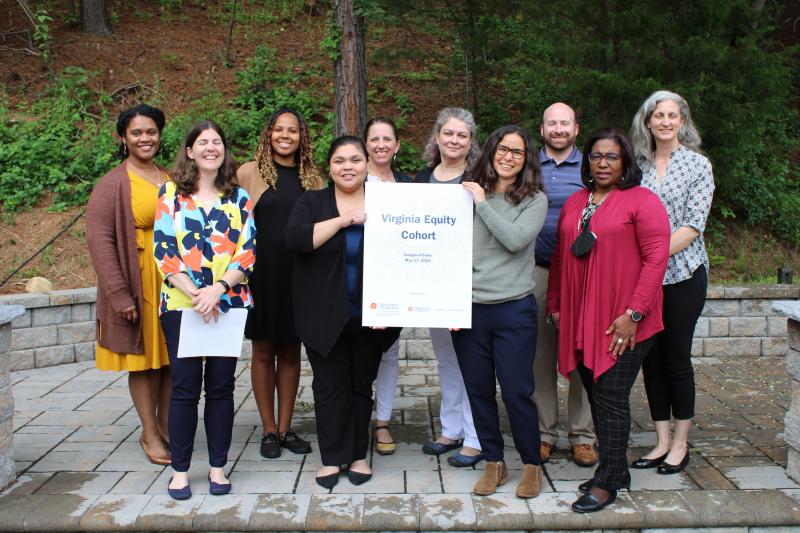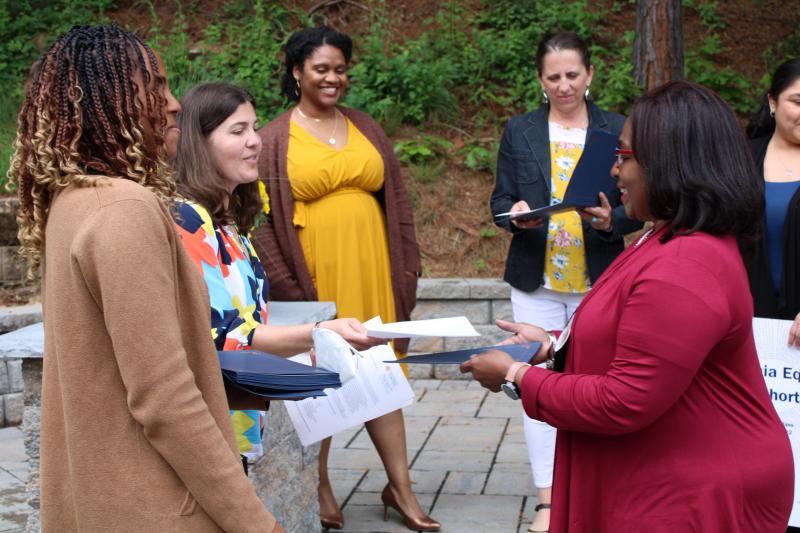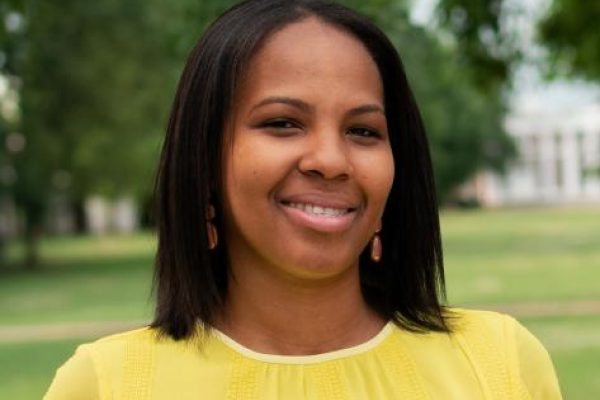Virginia Equity Cohort Convenes Leaders from Across the Commonwealth to Promote Good Governance
City and county municipalities throughout the Commonwealth of Virginia are challenged more than ever with addressing inequity in their local communities.
The Virginia Equity Cohort program was developed jointly by the School of Data Science and the Weldon Cooper Center for Public Service at the University of Virginia. The pilot program leveraged the expertise and resources of both organizations in alignment with shared goals around data for the public good and equipping communities with tools to promote good governance, equity, and resiliency. The cohort was co-led by Siri Russell, associate dean of diversity, equity, and inclusion at the School of Data Science, and Molly Harlow, assistant VIG director at the Weldon Cooper Center.

Launched in the fall of 2021, the Virginia Equity Cohort welcomed 17 participants from 16 localities across the Commonwealth who met online monthly to grapple with nuanced concepts and experiment with new ideas while learning together with peers. They covered common challenges in assessing how different groups may be affected by local government actions and decisions as well as the role of local government in facilitating equity in community outcomes.
“The Virginia Equity Cohort is more than just having a conversation,” Russell said. “Sometimes it can be hard to transform mission statements into action. Our purpose is to better understand what it means to ‘apply an equity lens’ in practice and to increase confidence in articulating that process to other people.”
“Data enters this conversation as a means of better understanding our current state, informing our actions, and measuring our progress,” she added.
Russell brings to the cohort expertise from her work with Albemarle County, where she led the creation and implementation of its DEI program and initiatives. Her work with the county ranged from revising diversity recruitment strategies to creating a framework for assessing the equity impacts of policies, practices, and legislative actions.
The partnership between the School of Data Science and the Weldon Cooper Center was a natural fit, as both institutions believe in using data for the public good. According to Larry Terry, executive director of the Cooper Center, “the partnership is driven by how to leverage data in the space of community to improve access, policy, and services that governments provide.”
He continued, “For us, the goal is to empower leadership in these spaces of public service to give them the tools they need to utilize data effectively so they can bring transformation.”
Stephenson Dean of Data Science Phil Bourne concurred.
“Equity has been looked at after the fact, using data science to explore inequities that already occurred or exist. What we really want to do is be in a position where inequity is looked at before it actually occurs,” he explained. “The Virginia Equity Cohort is just a first step toward responsible data science with real societal benefit.”
The cohort heard from a variety of speakers who have been DEI pioneers in their own localities, including: Nikuyah Walker, first Black female mayor of Charlottesville; Darlene Flynn, executive director of Oakland’s Department of Race and Equity; and Jonathan Butler, senior vice president of community development for the Tulsa Authority for Economic Opportunity.
Matt Hanratty, housing and neighborhood services manager for the town of Blacksburg, appreciated the extensive network Russell drew from for the guest speakers.
“We had some great speakers who gave great advice on how to get the work started in the community,” he said. “These were folks from across the country who were trailblazers in their respective communities. I will be circling back to their advice as we start our own work in Blacksburg.”

Work sessions were also held on a variety of topics. They ranged from examining equity profiles using demographic and economic trends, to the application and development of equity impact assessment tools that could be used on projects, policies, and programs. One session also featured a screening of Race: The Power of an Illusion, an award-winning documentary series by Larry Adelman.
Letecia Loadholt, former social services director for Fredericksburg, remarked, “The cohort opened my eyes to a lot of different things. DEI is about equity for all, inclusion for all. The program challenged me to look through a different lens and taught me how to start conversations when appropriate or think of other ways to engage people.”
The participants were given a common language to open important conversations with their peers and community leaders. They each worked on a project and presentation that illustrated the challenges and opportunities they faced within their own localities, finding ways to implement real, equitable, and inclusive change.
Matt Hanratty from Blacksburg saw the cohort as an opportunity to start learning about DEI and understand how to apply it to his work in affordable housing.
“Blacksburg just finished a comprehensive plan update, and for the first time, we included an equity chapter,” he said. “This is important for the community and town to focus on community well-being, and DEI is a starting point.”
Kim Thurlow, housing and community development initiatives manager for Blacksburg, agreed.
“We are experiencing fast rising housing costs, not just in Blacksburg, but everywhere, and it has a real impact on equity. It changes the nature of our community,” she explained.
The program also challenged Thurlow to take a more intentional approach. “It’s important to carve out time and space to think about how the work we do ripples across other areas of local government. [The cohort] has helped me to broaden the conversation beyond just housing,” she said.
Susan Elliott, climate protection program manager for the city of Charlottesville, found the program’s cohort learning experience was a valuable way to connect and work with peers from across the Commonwealth.
“I particularly enjoyed the small break-out discussions with my peers who work in the same regulatory background,” she reflected. “It was interesting to hear about different positions and dynamics, political climates, and layers of racial construct.”
The program culminated with in-person and virtual presentations last Friday, with opening remarks by Dean Phil Bourne from the School of Data Science and Executive Director Larry Terry from the Weldon Cooper Center. Participants’ presentations drew directly from their current work, ranging from community parks and transportation to affordable housing and climate change.
When asked who might benefit the most from participating in the program, Elliott encouraged an open frame of mind, active listening, and an interest in the topic.
“You must be willing to look at your current work and figure out how to integrate that into the program,” Letecia Loadholt from Fredericksburg agreed.
Each member of the cohort identified an existing information gap that was hindering their own efforts to determine equity impacts. Going forward, Russell and a team of M.S. in Data Science graduates and students will work with each participant individually to address the issues they identified.
This fall, Russell and Harlow also hope to launch the next iteration of the program and extend its reach even further. As the program grows, there are also plans to connect the cohorts with each other to strengthen ties and build a community of practice.

